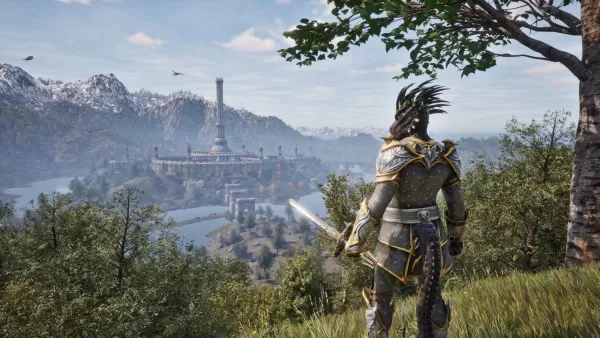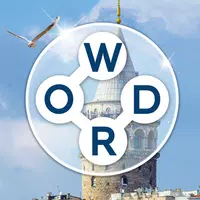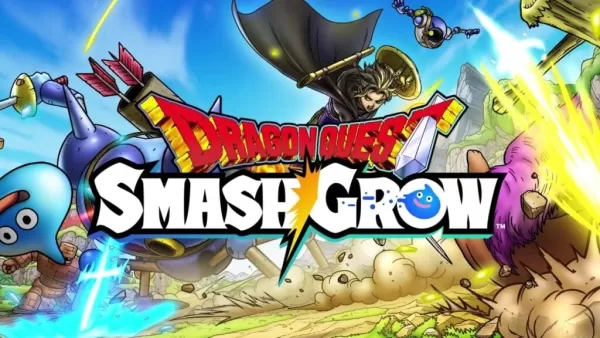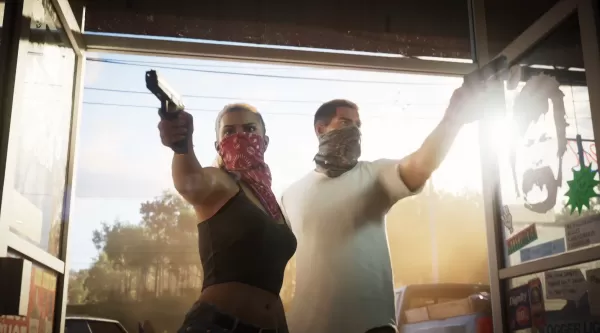"Remakes Key to Bethesda's Revival, Says Oblivion"
By Azura, by Azura, by Azura – the rumors were true. Yesterday, Bethesda set the internet ablaze by finally unveiling Virtuos' remaster of The Elder Scrolls IV: Oblivion. An 'Elder Scrolls Direct' event culminated in a surprise shadow-drop, which instantly attracted hundreds of thousands of concurrent players. This moment of global excitement and celebration feels like a much-needed respite amidst the challenges Bethesda Game Studios has faced in recent years. From managing the fallout of Fallout 76's troubled launch to the lukewarm reception of their new sci-fi universe, Starfield, fans have been questioning whether Bethesda has lost its touch. With fierce competition from RPGs like Larian Studios' Baldur's Gate 3 and Obsidian's The Outer Worlds, both of which have been hailed as spiritual successors to Elder Scrolls and Fallout, Bethesda's upcoming titles, Elder Scrolls 6 and Fallout 5, are years away from recapturing their former glory. Yet, this re-release of Oblivion might just be the step in the right direction – albeit an unexpected one.
At its zenith, Bethesda Game Studios was a powerhouse in the RPG world. In 2020, leaked Microsoft FTC documents revealed that Fallout 4 had sold an impressive 25 million units, with over 5 million units sold in its first week alone according to VGChartz. In 2023, Todd Howard announced that Skyrim had surpassed 60 million sales, though multiple re-releases certainly played a role. In contrast, Starfield's sales estimates stand at just over three million units a year and a half after its launch. Despite the boost from Game Pass subscribers and the absence of a PlayStation release, this must be a disappointment for Bethesda. Even Starfield's dedicated fanbase has expressed dissatisfaction with its first expansion, Shattered Space.
This situation presents a significant challenge for the developer. With The Elder Scrolls 6 still "years away" and Fallout 5 a mere whisper in the studio's corridors, how can Bethesda rekindle the magic for its fanbase? The answer may lie in revisiting its past.
Rumors of the Elder Scrolls IV: Oblivion remaster surfaced in September 2023, sparked by leaked Microsoft documents revealing unannounced Bethesda projects, including a remaster of the 2006 classic. The buzz continued until January 2025, when a former Virtuos employee leaked more details, sparking debates among Elder Scrolls fans about their authenticity. Finally, last week, the floodgates opened (albeit prematurely), igniting the internet – Google searches for 'The Elder Scrolls IV: Oblivion' surged by 713% in the last week, reaching over 6.4 million. At its peak, Bethesda's reveal livestream attracted over half a million viewers. Despite the leaks, more than 600,000 tuned in to see a 19-year-old game reintroduced. The intense demand for the remaster overwhelmed discount game key sites like CDKeys, causing them to crash, while slowing down Fanatical and Green Man Gaming. As of yesterday, Steam reported 125,000 concurrent players, with the game firmly holding the #1 best-seller spot. The enthusiasm for Oblivion among Bethesda fans burns as brightly as the flames from the Oblivion gates themselves.
The message from players is clear: if you (re)build it, they will come. What better way to keep fans engaged during these long development periods than by inviting them to revisit the mysterious isles of Morrowind or the post-apocalyptic landscapes of the East Coast? From a commercial perspective, this strategy is sound. While Bethesda's main development team focuses on new projects, trusted partners like Virtuos can use existing blueprints to create remasters in shorter time frames. These remasters have built-in audiences and can introduce new generations to the rich worlds of Tamriel and the Fallout universe.
Bethesda has previously leveraged its catalog effectively. During the first season of the Fallout TV show on Prime Video, Fallout 4 was discounted by up to 75%, accompanied by a timely next-gen update featuring elements from the show. As a result, Fallout 4 sales surged by over 7,500% in Europe, despite being nearly a decade old.
 Oblivion Remastered offers a visit to the past that looks like the future. Image credit: Bethesda / Virtuos
Oblivion Remastered offers a visit to the past that looks like the future. Image credit: Bethesda / Virtuos
Looking back at Microsoft's leaked Bethesda roadmap, many noted a planned Fallout 3 remaster following Oblivion by two years. Although the original timelines have shifted – Oblivion was initially slated for fiscal year 2022 – if the original gaps hold true, a Fallout 3 remake could be expected in 2026, coinciding with the second season of the Fallout TV series. Given the synergy between the show's first season and Fallout 4, could Bethesda be planning a surprise New Vegas remake to align with the show's second season, which is set in New Vegas? The shadow-drop of Oblivion suggests that a New Vegas Remastered trailer could be waiting at the end of Fallout Season 2's finale.
The message from players is clear: if you (re)build it, they will come. However, if there's one game in Bethesda's back catalog that deserves a remake the most, it's The Elder Scrolls III: Morrowind. Many fans have been clamoring for this, with some even remaking Morrowind using Skyrim's tools, as seen in projects like Skyblivion. Yet, remaking Morrowind is no easy feat. It stands at a crossroads in Bethesda's evolution, built differently from modern Elder Scrolls games. It's partially voiced, relies heavily on text for storytelling, lacks quest markers, and has simplistic combat physics. While Virtuos successfully updated some of Oblivion's systems, Morrowind's core is inherently challenging. Remaking it is a delicate balance – modernize too much, and you risk losing its unique charm; retain too many outdated elements, and it might feel overwhelming to new players.
When a studio becomes synonymous with a gaming sub-genre, the challenge is to innovate while retaining its audience. Rockstar Games has kept Grand Theft Auto fans engaged for over a decade with GTA Online, fueling the rumored massive budget for GTA 6. Bethesda's strength lies in its richly detailed, expansive single-player worlds – Elder Scrolls Online and Fallout 76 don't quite capture the same magic. The overwhelming response to Virtuos' Oblivion remaster shows that gamers are eager to revisit Bethesda's classic titles. While not every remaster guarantees success – as seen with Rockstar's GTA Definitive Editions – breathing new life into old classics could be the key for Bethesda to reclaim its position as the leader in modern RPGs.




























